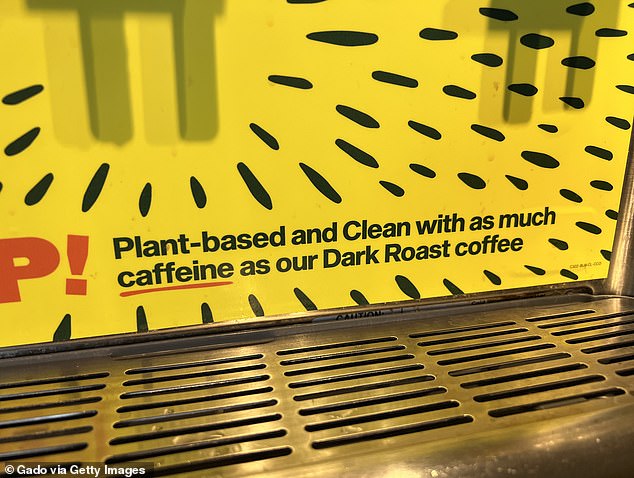Panera Bread’s Charged Lemonade blamed for second death in new lawsuit claiming man died after drinking highly caffeinated beverage
Panera Bread is facing a second wrongful death lawsuit after a Florida man suffered a fatal cardiac arrest while consuming the chain's highly caffeinated “Charged Lemonade.”
A lawsuit filed Monday alleges that Dennis Brown, 46, went into cardiac arrest on Oct. 9, just after leaving his local branch of Panera Bread on Fleming Island. He was found unconscious on the sidewalk and pronounced dead at the scene.
According to the lawsuit, Mr. Brown, who lived with developmental disabilities and high blood pressure, had started consistently ordering the drinks three weeks before his death.
The news comes weeks after the family of 21-year-old Sarah Katz claimed the Pennsylvania student, who had an underlying heart condition, died after drinking a large Charged Lemonade last year.
Dennis Brown, 46, reportedly died of cardiac arrest after consuming three Panera Charged Lemonades

A regular size Charged Lemonade, which is 20 ounces, contains 260 milligrams of caffeine. The large, which comes in a 30-ounce cup, has 390 milligrams
Elizabeth Crawford, the attorney representing Brown's family, told local news station Action News Jax that her client was “reasonably confident” the drink did not contain caffeine.
In reality, a large 30-ounce size contains 390 milligrams, which is almost the entire recommended daily limit from the Food and Drug Administration (FDA).
Ms Crawford said Mr Brown had a habit of ordering three drinks in a row, and that on the day of his death he had three refilled lemonades with his dinner.
The lawsuit does not specify what size of drink Mr. Brown ordered.
He also ordered the drink on September 28, October 2, October 4, October 5 and October 7.
He didn't normally order energy drinks. According to the lawsuit, he only drank water, root beer, iced tea and Charged Lemonade.

The lawsuit claims that Mr. Brown was “reasonably confident that it was a traditional lemonade that contained a reasonable amount of caffeine that he could safely drink.”

Panera markets its Charged Lemonade as “plant-based” and “clean,” but doesn't warn about the high caffeine content. At the time of Mr. Brown's death, the chain was selling the drink alongside other, much less caffeinated drinks
The lemonade was offered alongside other soft drinks and was not advertised as an 'energy drink'. There were no high caffeine warnings to customers.
“Dennis consumed the Panera Charged Lemonade, reasonably certain that it was a traditional lemonade that contained a reasonable amount of caffeine that he could safely drink,” the lawsuit said.
The lawsuit argued that Panera should classify the drink as an energy drink and provide warnings about its caffeine content. “Panera Charged Lemonade is flawed by design because it is a dangerous beverage,” legal documents state.
Ms Crawford said: 'I think this lemonade is a wolf in sheep's clothing. I think for two reasons. I think it's a wolf in sheep's clothing because it's sold at Panera Bread, and I think the reasonable person would equate Panera Bread with the healthier alternative.”
'Then it is also sold as lemonade. And I think people generally think lemonade is harmless.”
A regular size, 20 ounces, contains 260 milligrams of caffeine. The large, which comes in a 30-ounce cup, has 390 milligrams.

Sarah Katz (pictured) died on September 10, 2022, just hours after consuming a large Charged Lemonade from a branch of Panera Bread in Philadelphia
For comparison: the average 250 gram cup of coffee contains 80 to 95 milligrams of caffeine.
The FDA's recommended daily caffeine limit is 400 milligrams.
Mr. Brown lived with a chromosomal deficiency disorder, developmental delay, high blood pressure and ADHD.
A chromosomal deficiency disorder occurs when a person has missing, extra, or irregular parts of their DNA. It is associated with conditions such as Down syndrome, CHARGE syndrome, Rett syndrome and Fragile X syndrome.
Legal documents did not specify which of these conditions Mr Brown had.
Developmental disorders are not associated with increased sensitivity or tolerance to caffeine.
In October, the family of University of Pennsylvania student Sarah Katz claimed the 21-year-old went into cardiac arrest for hours after consuming a large Panera Charged Lemonade.
Ms. Katz was diagnosed with the heart rhythm disorder long QT syndrome as a child, which caused her heart to beat irregularly (arrhythmia).
Dr. Stuart Fischer, an internist in New York, previously told DailyMail.com that caffeine can eliminate the vital pauses between heartbeats in people with long QT syndrome.
'Patients with this condition take a little longer than normal to restart after the heart muscle contracts.'
Caffeine, he explains, speeds up the beating pattern, putting too much strain on the already stretched organ.
“If there is too much activity when the muscle needs to relax, it can be potentially fatal or at least a major medical emergency.”
According to legal documents, Ms. Katz had managed her condition by taking medication and limiting caffeine. She didn't know the drink contained 390 milligrams of caffeine, more than four cups of coffee.
Panera released a statement on Monday following Mr. Brown's death, saying: “Panera extends our deepest sympathies to Mr. Brown's family.”
“Based on our investigation, we believe that his unfortunate death was not caused by any of the company's products.”
“We also consider this lawsuit, filed by the same law firm as a prior claim, to be without merit. Panera stands firmly behind the safety of our products.”
